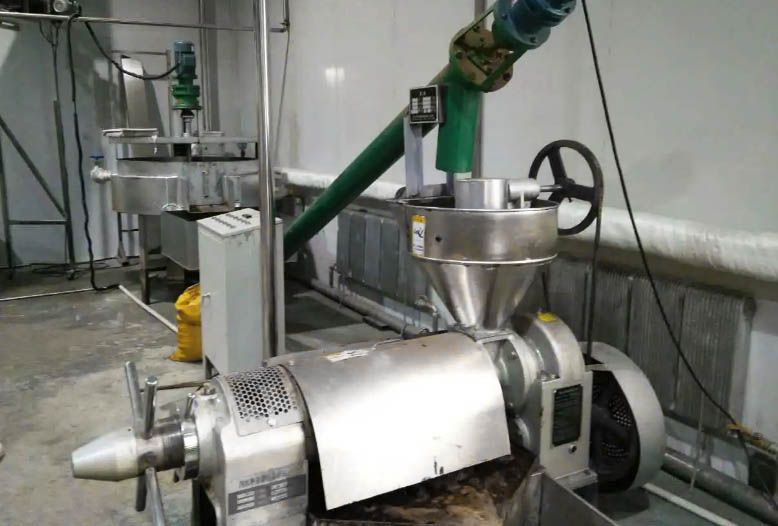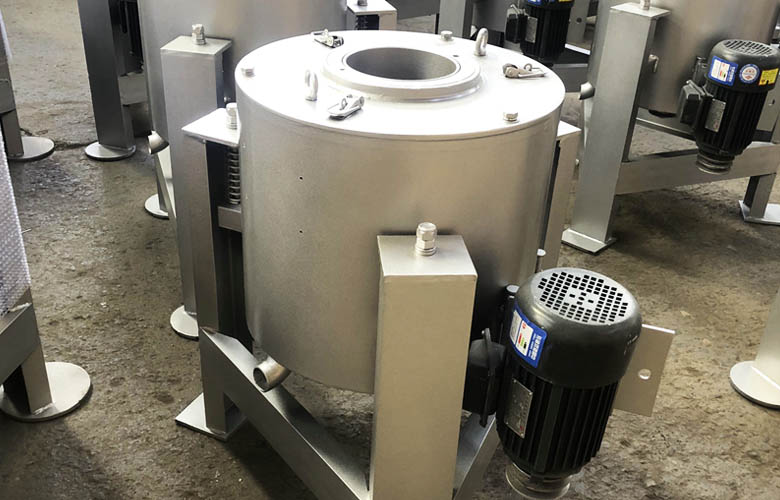What factors need to be considered when investing in a small oil press factory
If you are planning to invest in a small oil press factory with a production capacity of 3-5 tons per day, there are several factors to consider when choosing the type of oil press that would be suitable for your needs.
1, Raw Material Availability:
The type of oil press you choose should be compatible with the type of oilseeds or nuts that are readily available in your region. Consider the local agricultural resources and availability of raw materials such as groundnuts, palm fruits, sunflower seeds, sesame seeds, coconut, or shea nuts, and choose an oil press that is designed to process those specific raw materials.
2, Oil Yield Efficiency:
Look for an oil press that has a high oil yield efficiency, which means it can extract the maximum amount of oil from the raw materials with minimal waste. Higher oil yield can result in better profitability for your small oil press factory.

3, Quality of Oil and Cake:
Consider the quality of oil and cake produced by the oil press. The oil should have good flavor, color, and aroma, and the cake should have low oil content and be suitable for use as animal feed or further processing.
4, Durability and Reliability:
Choose an oil press that is well-built and durable, with reliable performance. A reliable oil press can minimize downtime and reduce maintenance costs, ensuring smooth and efficient operation of your small oil press factory.
5, Scale and Automation:
Consider the scale of your production requirements and the level of automation you desire. Small-scale oil presses are typically manual or semi-automatic, while larger-scale ones may have more automated features. Choose an oil press that matches your production scale and automation requirements.
6, After-sales Support:
Look for an oil press manufacturer that provides good after-sales support, including technical assistance, spare parts availability, and customer service. This can be beneficial for the smooth operation and maintenance of your oil press.
7, Cost and Budget:
Consider your budget and the overall cost of the oil press, including the initial purchase cost, installation, and ongoing operational costs. It’s important to strike a balance between the cost of the oil press and the potential returns on your investment.
Based on these factors, popular types of small oil presses that could be suitable for a production capacity of 3-5 tons per day include screw oil presses, hydraulic oil presses, and combined oil presses that can process multiple types of oilseeds.
In addition to the oil press, what other machines do need?
Setting up a small oil press factory typically requires more than just an oil press. Depending on the specific requirements of your production process, you may need additional machines and equipment for various stages of oil production. Some of the common machines and equipment that are typically used in conjunction with an oil press include:
1, Oil Filter:
An oil filter is used to remove impurities and particles from the crude oil after it has been extracted from the oil press. This helps improve the quality and purity of the final oil product. There are different types of oil filters available, such as plate and frame filters, vertical leaf filters, and centrifugal filters.

2, Oil Refinery Equipment:
If you are producing edible oils, you may need oil refinery equipment to further refine the crude oil and remove impurities such as gums, phospholipids, and free fatty acids. This can involve processes such as degumming, neutralizing, decolorizing, and deodorizing, depending on the type of oil being produced and its intended use.
3, Seed Cleaning Equipment:
Seed cleaning equipment is used to clean and remove impurities from the raw oilseeds or nuts before they are processed in the oil press. This can include processes such as seed cleaning, de-hulling, and seed grading to ensure that the raw materials are of high quality and free from debris, stones, or other contaminants.
4, Seed Roasting Equipment:
Some oilseeds may require roasting or heating before pressing to improve the oil extraction efficiency and quality of the oil. Seed roasting equipment, such as seed roasters or seed fryers, may be needed for this purpose.
5, Seed Crushing or Flaking Equipment:
Certain oilseeds, such as soybeans or sunflower seeds, may require crushing or flaking before they are fed into the oil press. Crushing or flaking equipment can be used to break down the raw materials into smaller pieces, which can facilitate the oil extraction process.
6, Oil Storage Tanks:
Oil storage tanks are needed to store the crude or refined oil after it has been extracted or refined. These tanks should be made of food-grade materials and designed to maintain proper storage conditions for the oil, such as temperature, light exposure, and air circulation.
7, Packaging and Labeling Equipment:
Packaging and labeling equipment may be required if you plan to package and label your final oil product for distribution. This can include machines for filling, capping, and labeling bottles, cans, or other containers, depending on your packaging requirements.
It’s important to carefully assess your specific production requirements, oil processing methods, and product quality standards, and choose the appropriate machines and equipment accordingly. Consulting with oil processing experts or equipment manufacturers can be helpful in determining the right setup for your small oil press factory.

